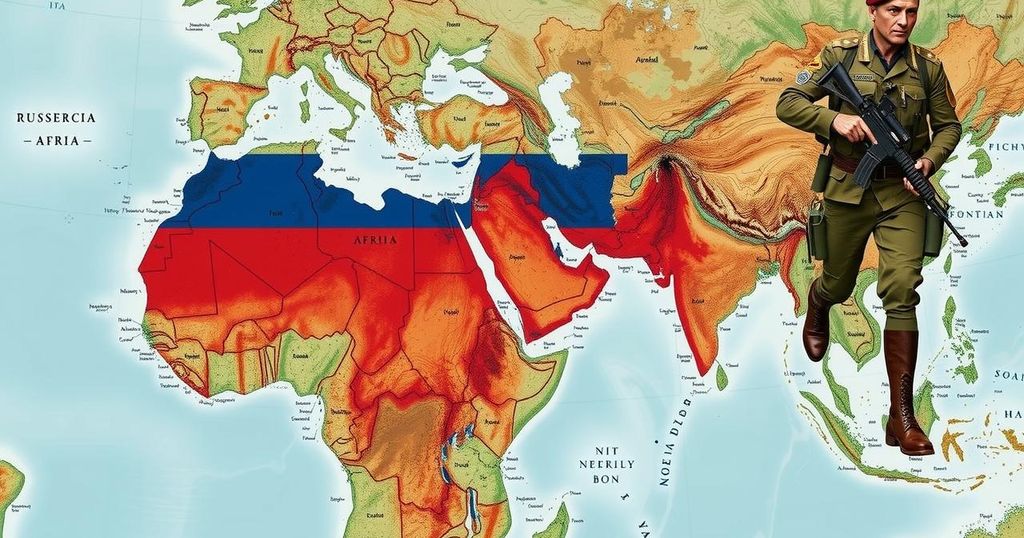Vladimir Putin faces growing resistance in Africa, particularly from Sudan and Libya, against Russian military presence. Sudan has rejected a naval base request from Russia, while Libya’s Prime Minister Abdul Hamid Dbeibeh has pledged to resist unauthorized foreign military entry. These developments threaten Russia’s influence on the continent, especially after setbacks following the Assad regime’s collapse in Syria.
Recent developments indicate a significant decline in Russia’s influence in Africa, particularly in light of its recent setbacks in Syria. Key allies of Vladimir Putin, namely Sudan and Libya, are expressing resistance to Russian military initiatives within their territories. Sudan has officially turned down a Russian request to establish a naval base on the Red Sea, reportedly influenced by fears of Western repercussions. Concurrently, Libyan Prime Minister Abdul Hamid Dbeibeh has made it clear that any unauthorized military presence in Libya will be opposed.
The backdrop of these events is marked by the tenuous positioning of Russian forces in Syria following the downfall of the Assad regime, which has prompted speculation about a potential reduction of Russian military assets in that region. Consequently, Moscow appears to be attempting to refocus its efforts on securing its foothold in Africa, especially in light of previous interests in establishing a naval presence in Sudan since 2019. However, internal conflicts and terms of governance complicate these ambitions.
Analysts suggest that, amid these political shifts, Russia may be relocating military assets from Syria to Libya through clandestine means, further jeopardizing regional stability. There is a stark warning from Libyan authorities that military incursions that disregard sovereignty will be met with resistance. The implications of these developments could significantly constrain Russia’s capacity to project power and influence in Africa and beyond, particularly amid its ongoing challenges related to the conflict in Ukraine.
The current geopolitical climate surrounding Russian military engagement in Africa has been strained significantly following the recent political changes in Syria. The defeat of Bashar al-Assad places Russia’s military installations at risk and raises concerns regarding its strategic foothold in the Mediterranean region. Russia has actively sought to establish relations with African nations to secure supply routes and sustain influence, yet internal strife within these countries poses significant obstacles.
In summary, Russia’s ambitions to consolidate military presence in Sudan and Libya face substantial roadblocks due to explicit rejections from both nations. The declining stability in Syria exacerbates these challenges, potentially undermining Russia’s regional influence in Africa. This situation may compel Moscow to reassess its strategy amidst the increasing complexity of international relations and the demands of the ongoing conflict in Ukraine.
Original Source: www.newsweek.com






